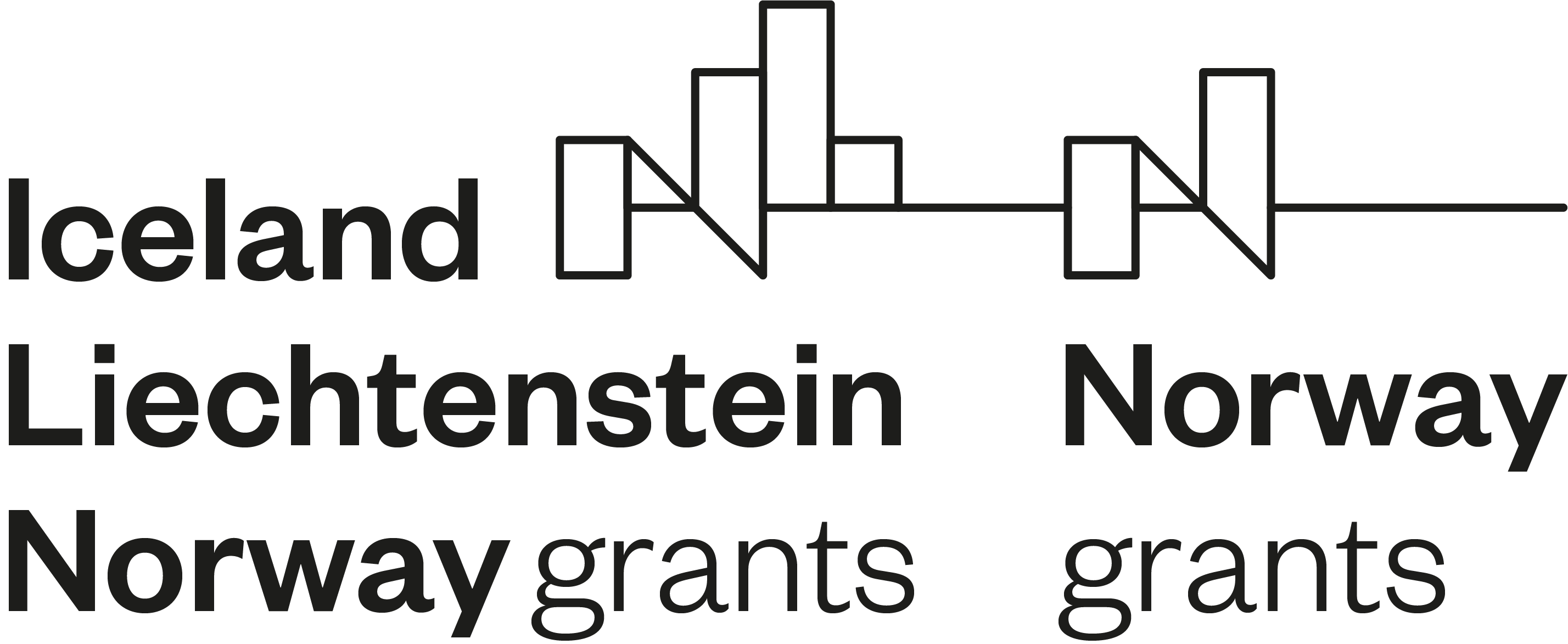Resource documents
June 30, 2022
We describe the details of ISIS’s evolution and operation in order to shed light on this threatening movement
June 30, 2022
This paper therefore argues that, in order to devise and implement an optimal approach to their reintegration, relevant lessons should be drawn both from child soldier reintegration initiatives as well as from terrorist deradicalization and rehabilitation programs.
June 30, 2022
This paper therefore argues that, in order to devise and implement an optimal approach to their reintegration, relevant lessons should be drawn both from child soldier reintegration initiatives as well as from terrorist deradicalization and rehabilitation programs.
June 30, 2022
In the present study we surveyed a representative sample of the UK general population (n = 1500) where participants self-reported risk factors and indicators for vulnerability to radicalisation.
June 16, 2022
The manual "Sensitively Oriented Operational Work in Prisons" includes an analysis of
the system of execution of criminal sanctions in the Republic of Serbia, the Republic of Romania
and the Republic of Northern Macedonia with an emphasis on the humane concept of work with
persons deprived of liberty and a proactive approach to discrimination in prisons.
June 2, 2022
This Research Note provides an initial argument for the merits of adopting a fairly straightforward ecological approach to organising and extending our grasp of the social and social psychological factors influencing the career of potential jihadists.
May 18, 2022
This article is intended to dig into the DAESH ideology and the motivations and profiling of the European foreign fighters who are attracted by the group.
May 18, 2022
This report discusses issues of recruiting for violent extremism in prisons
May 18, 2022
Countering terrorism and preventing radicalization and violent extremism have taken center stage in donors’ and governmental policy agendas in Kosovo over the past 6 years. While many research and policy initiatives have been funded on drivers, causes and mechanisms to counter violent extremism and radicalization, there has been no critical analysis of their societal effects as they target specific sectors of Kosovo’s society.
May 18, 2022
The essay concludes by discussingfuture jihadist threats to European security. Given the jihadi movement’s hostility toward Christian institutions IS’ war against the West could well shift to Southern European Catholic countries
December 20, 2021
The Strategy is based on principles and values enshrined in the Constitution, and is harmonized with valid legislation of the Republic of Serbia. The purpose and objectives of the Strategy are harmonized with the basic strategic documents in the Republic of Serbia in the field of security and countering of terrorism, in particular with the National Security Strategy of the Republic of Serbia.
December 20, 2021
The Countering Violent Extremism (CVE) Strategy has been developed as part of the Government of Montenegro’s effort to effectively address the problems of radicalization and violent extremism. It represents an integral part of the Government of Montenegro’s multifaceted contribution to the global fight against terrorism in all forms and manifestations. It builds on and complements the national Strategy for the Prevention and Supression of Terrorism, Money Laundering and Terrorism Financing. It represents a response to the threat of radicalization to violence, violent extremism and in particular the problem of foreign terrorist fighters.
December 17, 2021
Strategic objectives determined under this strategic document aims to address the push and pull factors that influence the radicalization of the population, with special emphasis on the youth.
December 17, 2021
We intend to build on these strengths and invest resources and political capital in the relationship
December 17, 2021
The project's overall aim is to contribute to regional security by addressing radicalisation in prisons and disengaging violent extremist prisoners from violence.
December 17, 2021
With the present document the Republic of Macedonia seeks to coordinate the efforts of the ministries, governmental and nongovernmental institutions.
December 17, 2021
is important to emphasise that the Strategy is adopted at the time of intensifying security challenges on a global scale, including, among other, foreign terrorist fighters, violent extremism and crime and hate speech, abuse of the Internet for terrorist purpose.
December 17, 2021
This Strategy will enable the Albanian government to devise guiding principles, policies, and actions to address radicalization and violent extremism. With the end goal of creating a prosperous and inclusive environment for citizens, this Strategy will also cultivate a culture of respect for fundamental freedoms throughout the country.
December 17, 2021
Albania 2017- Decision on the Creation of the Center of Coordination in Countering Violent Extremism
Albania 2017 Council of Ministers Decision on the Creation of the Center of Coordination in Countering Violent Extremism (CVE Center)
December 17, 2021
This article aims to present an analysis of internal and external factors that have contributed to the development of the phenomenon: the economic, social and ideological aspects, and the areas most affected by this issue.
December 17, 2021
This Country Profile provides a brief overview of religious diversity and its governance in the above-named state.
December 17, 2021
We conclude with a brief summary, suggestions as to how this comparative framework could be expanded for future use, and a set of five recommendations for counter-speech activists and practitioners.
December 17, 2021
The paper is structured around these two contexts. While in practice this distinction may not exist in some EU Member States, it serves to identify key issues: prison conditions and reintegration strategies, risk assessment, prison regime choices, rehabilitation and reintegration initiatives, and staff training.
December 17, 2021
A genealogy of the radical ideas that underline al-Qaeda’s justification for violence shows that the development of jihadi thought over the past several decades is characterized by the erosion of critical constraints used to limit warfare and violence in classical Islam.
December 17, 2021
This manual offers guidance to first line practitioners regarding the rehabilitation of radicalised and terrorist offenders inside as well as outside of prison.
December 17, 2021
This policy paper focuses on the aptness of the EU and other stakeholders’ prevention strategies towards violent extremism in Albania.
December 17, 2021
This study is prepared in the framework of the project “Countering violent extremism in Albania – Persisting violent extremist forms and threats and the way forward to reinforced PVE”, supported financially by the Public Affairs Office of the US Embassy in Tirana.
December 17, 2021
The challenges European authorities have had to face are similar to those their U.S. counterparts are expected to confront, and several lessons are at hand from the European experience.
December 17, 2021
The report seeks to highlight challenges common to the four countries examined. From the onset, European authorities have struggled to identify the target of their actions. Most recently, authorities throughout the continent seem to have shifted their focus from the broader phenomenon of extremism to the narrower subcategory of violent radicalization.
December 17, 2021
Specifically, the policy brief makes an argument for a Realist approach as developed by Pawson and Tilley , which is concerned with the identification of policies’ underlying causal mechanisms and the way in which they function across contexts. In other words, a Realist approach aims to move beyond assessing ´whether the programme works´ to ´why the programme (sometimes) works’ and ‘why it works differently in different environments’, in order to identify what can be done to maximise the chances of success.
December 17, 2021
The article examines the problem of radicalization among the incarcerated in places of confinement.
December 17, 2021
This Research Note sketched a more complex picture of converts joining IS than the one presented by the media.
December 17, 2021
This article presents an in-depth evaluation of a specialized reintegration initiative within the Dutch Probation Service focused on individuals convicted or suspected of involvement in terrorism.
December 17, 2021
his overview paper focuses on right-wing extremism (RWE) and freedom of expression. It provides advices from first-line practitioners on how to deal with and respond to extremists publicly expressing their ideologies in a nonviolent, but still potentially harmful, way. It also delves into the matter of how practitioners can protect themselves against potential backlash and threats of violence from extremist organisations or movements.
December 17, 2021
This manual aims to help and inspire exit work practitioners in their communication with (former) extremists, based on the expertise of experienced professionals. Not all suggestions provided will apply to every single exit process or facility.
December 17, 2021
This report describes the Office of the Inspector General’s (OIG) review of the Federal Bureau of Prisons’ (BOP) policies and procedures for the selection of individuals who provide Islamic religious services to federal inmates.
December 16, 2021
The focus of this Handbook is on adult male and female violent extremist prisoners. The specific issue of children alleged as, accused of, or recognized as having committed violent extremist offences will be dealt with in a separate UNODC publication, recognizing the different legal regime applicable to children deprived of their liberty. Collective disengagement from violent extremism is also not covered in this Handbook, as its focus is on the individual prisoner and interventions aimed at individual disengagement from violence.
December 16, 2021
The following rules are not intended to describe in detail a model system of penal institutions. They seek only, on the basis of the general consensus of contemporary thought and the essential elements of the most adequate systems of today, to set out what is generally accepted as being good principles and practice in the treatment of prisoners and prison management.
December 16, 2021
This Handbook is one of a series of tools developed by UNODC to support countries in the implementation of the rule of law and the development of criminal justice reform. It is designed to be used by all actors involved in the prison system, including policymakers, legislators, prison managers, prison intelligence officers and prison staff. Members of other law enforcement bodies, non-governmental organizations and other individuals interested or active in the field of criminal justice and prison reform may find it of interest.
December 16, 2021
The present study finds that the foundations of religious tolerance in Albania are deeply rooted in the societal traditions and culture rather than from religious awareness, knowledge or practice.
December 16, 2021
The Journey to Extremism in Africa report represents a major output of UNDP Africa’s Preventing and Responding to Violent Extremism in Africa programme, which has set out since 2015 to provide leadership and support to national and regional partners in delivering development-focused and effective responses to the expanding crises associated with violent extremism across the continent.
December 16, 2021
This paper does not focus solely on religiously-inspired violent extremism. Many drivers apply to other forms of extreme behavior. Radical behavior in itself is not necessarily a problem. Non-violent radical behavior, especially if undertaken purposely in the political, economic or cultural sphere, can help to promote positive change. Violent extremism kicks in when radical behavior starts making use of indiscriminate violence as the means of expression.






